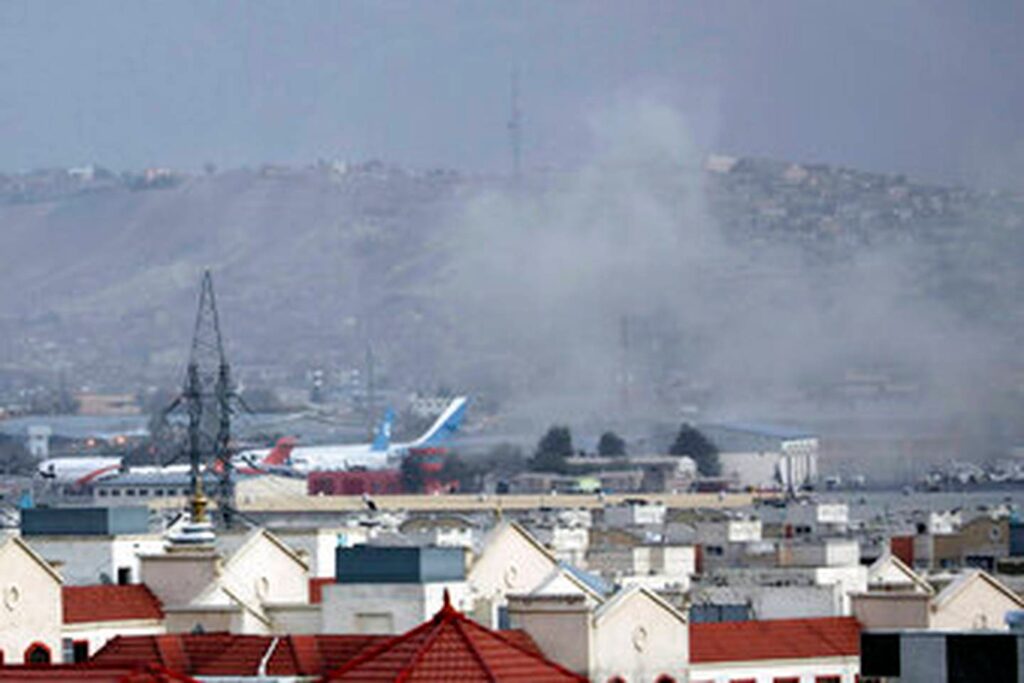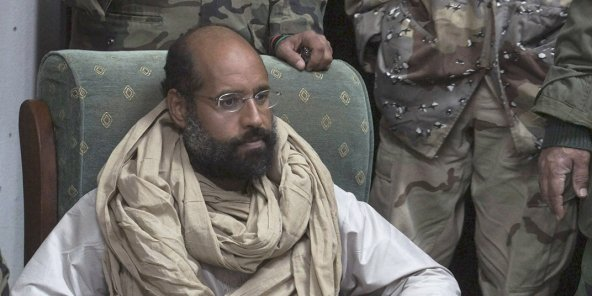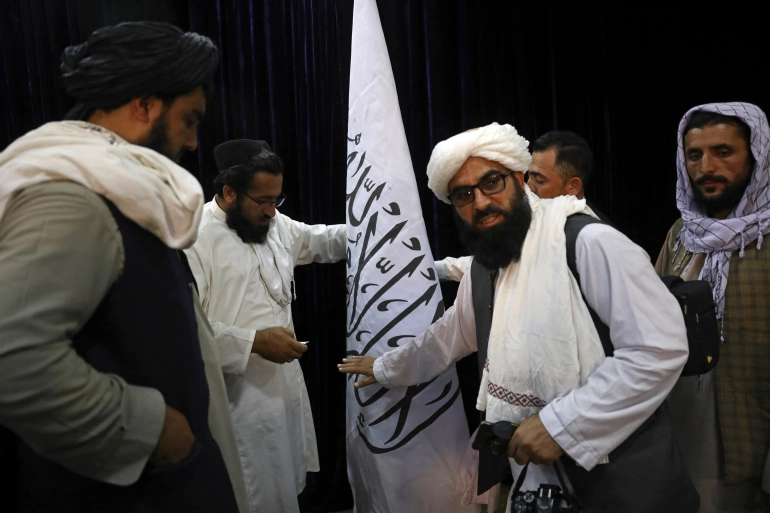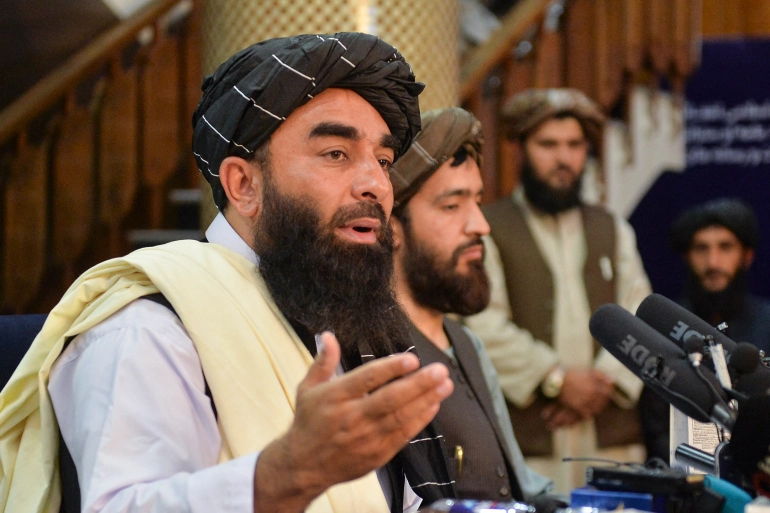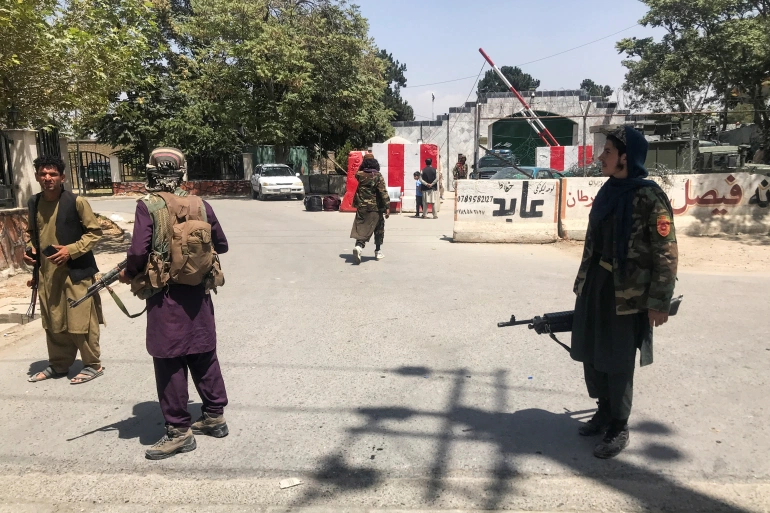Turkish showcases domestically-produced stealth fighter jet and drones at International Defence Industry Fair in Istanbul.
Turkish showcases domestically-produced stealth fighter jet and drones at International Defence Industry Fair in Istanbul.
The pride in Ugur Zengin’s voice is palpable as he stands in front of a full-scale model of Turkey’s fifth-generation stealth fighter jet.
“It’s a very prestigious project and a technical breakout for Turkey that will introduce a lot of new technologies for the whole defence industry,” said Zengin, vice president of the National Combat Aircraft project.
“There will be a very high percentage of local parts in the aircraft.”
The TF aircraft being developed by Turkish Aerospace is arguably the jewel in the crown of an industry that is widely viewed as one of Turkey’s foremost sectors. It featured prominently at the International Defence Industry Fair in Istanbul this week.
The fighter, which will replace the Turkish Air Force’s ageing F-4 and F-16 jets, is due to be unveiled to the public in 2023, the centenary of the founding of the Turkish republic, and is expected to be operational two years later.
“All the missile systems will be from local companies,” said Zengin, pointing to rows of missiles produced by Roketsan and Tubitak under the plane’s wings.
“The final objective is to have an aircraft that is 100 percent Turkish, although initially it will use an F110 engine,” he added, referring to the GE Aviation-designed engine built under licence in Turkey.
The introduction of the TF – previously known as the TF-X until passing the experimental stage – has gained added urgency after Turkey was kicked off the US-led F-35 stealth fighter project.
Ankara was removed from the programme in 2019 after it acquired Russian S-400 missile defence systems that the US claimed threatened the F-35’s secrets.
It had ordered more than 100 of the jets and invested at least $1.2bn in developing the fighter with other Western allies.
Washington later imposed sanctions targeting the Turkish defence industry over the S-400 purchase, although these seem to have done little to dent Turkey’s race to produce cutting-edge weaponry.
Turkey has hosted the defence fair every two years since 1993 and this year saw more than 1,200 exhibition stands from 53 countries take part, catering to delegates from 83 nations.
A huge exhibition hall on the western outskirts of Istanbul was given over to the four-day event, where the merchandise on display ranged from infantry boots to 2,000-pound (907kg) bombs and towering armoured personnel carriers to sniper scopes.
Foreign generals, their chests bristling with medals, rubbed shoulders with young Turkish men in jeans and T-shirts eager to try out the handguns on offer and pose for photos clutching assault rifles.
When Al Jazeera attended on Friday, two government ministers – Defence Minister Hulusi Akar and Minister of Industry and Technology Mustafa Varank – toured the exhibits followed by a trail of bodyguards, officials and journalists.
“The Turkish defence industry continued to grow stronger even under the conditions of COVID-19,” said Murat Ikinci, general manager at Roketsan, the largest supplier of missiles to the Turkish military and a key player in Turkey’s space programme.
“Now it’s time to show our power to the whole world.”
Speaking at the opening of the fair on Tuesday, Turkish President Recep Tayyip Erdogan underscored the importance placed in the industry.
“As a country that was forsaken at the most critical moments of its fight against terrorism and unable to acquire any of the products it needed while its borders were under threat, we were compelled to take steps to meet our own needs quickly,” he said.
The value of defence projects has risen from $5.4bn in 2002 to $55.8bn last year, according to the government’s Defence Industries Directorate, while defence and aerospace exports rose from $248m to $3.1bn between 2002 and 2019.
This growth has been driven by a desire to be “independent of foreign countries and foreign policies”, according to Gurkan Cetin, who leads the robotics and autonomous systems project at Havelsan.
“Turkey has experienced some trouble getting some weapon systems and components in the past and this made us leap forward to provide what we need ourselves,” he told Al Jazeera.
The US, a leading supplier of Turkish weaponry, imposed an arms embargo following Turkey’s 1974 invasion of Cyprus and more recently several NATO countries blocked defence sales after Turkey launched an operation against Kurdish fighters in northeast Syria in 2019.
The expansion in the defence sector’s financial muscle has been accompanied by a growing sense of pride in the proven effectiveness of Turkish weapons systems in Syria, Libya and Nagorno-Karabakh.
“Many Turkish weapons systems have been tested in combat, which is important because it shows what they can do in the field,” said Zengin.
Turkey’s aerial drone project, in particular, has caught the eyes of the world, with Qatar, Ukraine, Morocco, Azerbaijan, Tunisia and fellow NATO member Poland ordering armed UAVs (unmanned aerial vehicles) with a proven track record against Russian-made armour and air defence systems.
Defence analyst Arda Mevlutoglu pointed to the “unprecedented” use of drones in coordination with artillery, manned combat aircraft and electronic assets in recent conflicts.
Missile-laden drones were “extremely effective” against tanks, artillery and fixed positions with the added psychological advantage of publishing images of drone strikes on social media, he added.
All this adds to Turkey’s sense of growing self-confidence in the realm of war.
“We aren’t trying to sell anything here today,” one employee manning the Turkish Aerospace exhibit said. “We’re just here to show the world what we can do.”
